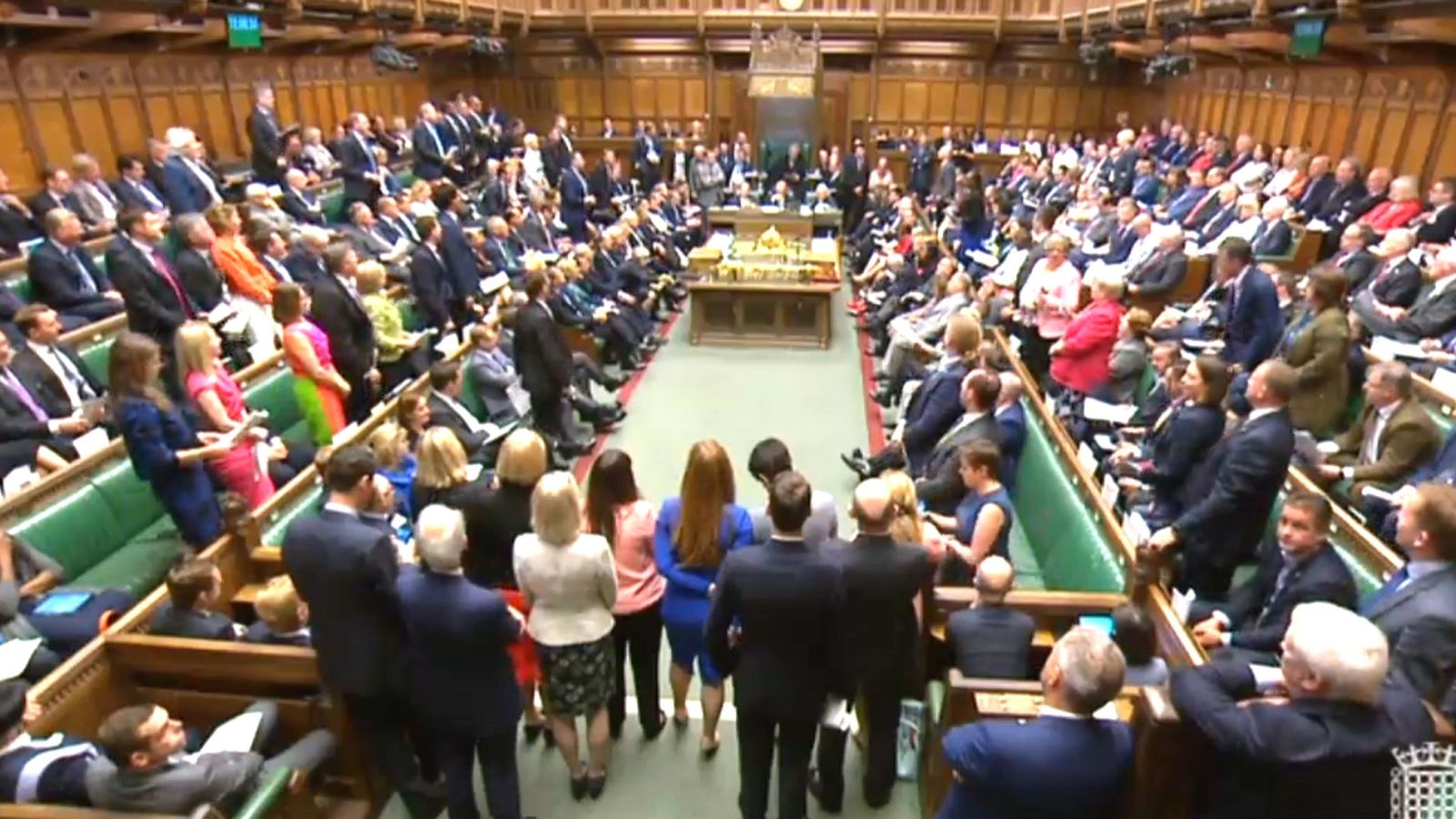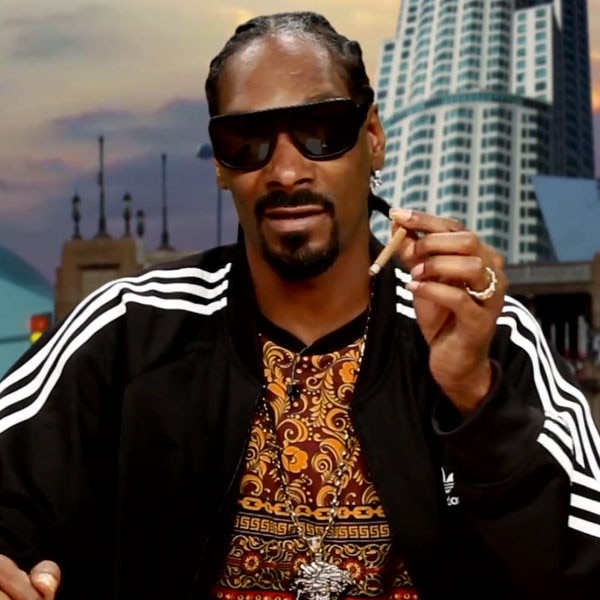
However, the speaker normally does not attend meetings of the boundary commissions; instead, the Deputy Chairman of the commission (usually a judge) normally presides. By convention the casting vote is issued in accordance with the constitutional convention known as Speaker Denison's rule, rather than in line with the speaker's personal opinion in the matter. The principle is always to vote in favour of further debate, or, where it has been previously decided to have no further debate or in some specific instances, to vote in favour of the status quo.
Officers
You’ll have to wait for the prime minister to set that out in the press conference later today. Normally at No 10 press conferences the BBC political editor gets called first, in recognition of the fact that he or she is normally seen as the most influential journalist in the lobby. Maybe people are being called in random order today, but at Westminster there will be suspicions that this is a discreet snub that will go down will with anti-BBC Tories. The three experts highlight the risk of asylum seekers being taken to Rwanda suffering “refoulement” – being returned to a country where they are at risk of persecution.
Scrutiny committees
She is responsible for the organisation of government business in the Commons, and she chairs a number of Cabinet Committees, including the Ministerial Committee on Constitutional Affairs and the Legislative Programming Committee. The Party Whips are responsible for the control of the day-to-day business by persuasive control over the actions of Members of Parliament[3]. The chief officer of the House of Commons is the Speaker who is a Member who has been elected to the post by his or her fellow-members. Once elected, the Speaker is expected to discard party connections and act with complete impartiality. Other officers of the House include the Chairman of Ways and Means and two deputy chairmen, who may all act as Deputy Speakers.
Rwanda bill clears parliament
During Henry IV’s time on the throne, the role of Parliament expanded beyond the determination of taxation policy to include the “redress of grievances,” which essentially enabled English citizens to petition the body to address complaints in their local towns and counties. By this time, citizens were given the power to vote to elect their representatives—the burgesses—to the House of Commons. Fourteen years later, the House of Commons tried and impeached a number of the king’s advisors. And, in 1399, after years of internal struggle for power between the monarchy and Parliament, the legislative body voted to depose King Richard II, enabling Henry IV to assume the throne. Permanent officers (who are not Members of Parliament) include the Clerk of the House of Commons, who is the principal adviser to the Speaker on the House's privileges and procedures, and the Serjeant at Arms, who is the housekeeper of the Commons' part of the Palace of Westminster. The Parliamentary Commissioner for Standards is an independent officer of the House who monitors the application of the Code of Conduct[8].
House of Commons Speaker fights for his job after chaotic Gaza debate - Financial Times
House of Commons Speaker fights for his job after chaotic Gaza debate.
Posted: Thu, 22 Feb 2024 08:00:00 GMT [source]
But he says tonight parliament will sit for as long as it takes to pass the bill. Rishi Sunak starts by blaming Labour peers in the Lords for blocking the Rwanda bill. If it ever comes to a choice between our national security, securing our borders, and membership of a foreign court, I’m, of course, always going to prioritise our national security. And, if he ever has to make a choice between national security and membership of a foreign court, he would put national security first. And you regain that trust and that confidence by making it clear that the police are not tolerating behaviour that we would all collectively deem unacceptable when we see it because it undermines our values. He says James Cleverly, the home secretary, is meeting Rowley to discuss this issue today.
Los Angeles City Hall
There was no formal limit on the number of Standing Committees, but usually only ten. Rarely, a bill was committed to a Special Standing Committee, which operated much like a Standing Committee, but also investigated and held hearings on the issues raised by the bill. The Parliament of the United Kingdom uses committees for a variety of purposes; one common use is for the review of bills. Bills of great constitutional importance, as well as some important financial measures, are usually sent to the Committee of the Whole House, a body that, as its name suggests, includes all members of the House of Commons.
The Independent Parliamentary Standards Authority
While the elections in Northern Ireland were both contested and won by Unionist parties, in Southern Ireland, all 128 candidates for the Southern Irish seats were returned unopposed. By 1254, the sheriffs of the various counties in England were instructed to send elected representatives of their districts (knowns as “knights of the shire”) to consult with the king on issues related to taxation. Four years later, at the English university town of Oxford, the noblemen who served in Parliament at the time drafted the “Provisions of Oxford,” which called for regular meetings of the legislative body, composed of representatives from each of the counties. The notion that a government remains in power only as long as it retains the support of Parliament also evolved, leading to the first ever motion of no confidence, when Lord North's government failed to end the American Revolution. The modern notion that only the support of the House of Commons is necessary for a government to survive, however, was of later development. Similarly, the custom that the Prime Minister is always a Member of the Lower House, rather than the Upper one, did not evolve until the twentieth century.
Proposals for reform
He then knocks on the door three times with his Black Rod, and only then is granted admittance, where he informs the MPs that the Monarch awaits them, after which they proceed to the House of Lords for the King's Speech. Sessions of the House of Commons have sometimes been disrupted by angry protesters throwing objects into the chamber from the galleries—items thrown include leaflets, manure, flour, and a canister of chlorobenzylidene malonitrile (tear gas). For instance, in 1976, Conservative MP Michael Heseltine seized and brandished the mace of the house during a heated debate. However, perhaps the most famous disruption of the House of Commons was caused by Charles I, who entered the Commons Chamber in 1642 with an armed force to arrest five members for high treason. This action was deemed a breach of the privilege of the house, and has given rise to the tradition that the monarch does not set foot in the House of Commons.
Parliament of the United Kingdom of Great Britain and Ireland
The facts that, in particular, they have access to all departmental files, and that they have the power to question any civil servant, may be expected to influence the conduct of government departments. Departmental Select Committees usually publish between 200 and 300 reports each year. His set piece Rwanda immigration deportation plan is close to becoming law, although its passage through the House of Lords may slip into next week. On Tuesday the House of Commons voted through his landmark Bill to effectively ban smoking for future generations. Sunak might yet look back on this as another crowning achievement if he is turfed out of office at the election. Yet in the free vote he gave his party, half of his own MPs chose not to back the smoking plan, including frontbenchers such as Kemi Badenoch; the business secretary was among 57 Tories who voted against it.
They insisted that they could not only control taxation, but also public expenditures. Despite such gains in authority, however, the Commons still remained much less powerful than the House of Lords and the Crown. The House of Commons evolved at some point during the fourteenth century and has been in continuous existence since. The House of Commons (the "lower house") was once far less powerful than the House of Lords (the "upper house"), but is now by far the dominant branch of Parliament. The House of Commons' legislative powers exceed those of the House of Lords; under the Parliament Act 1911, the Lords' power to reject most bills was reduced to a mere delaying power.
However, no parliamentary term can last for more than five years; a dissolution is automatic upon the expiry of this period unless an act of Parliament is passed extending the maximum term as happened during both World Wars. Parliament is almost never permitted to sit for the maximum possible term, with dissolutions customarily being requested earlier. The House of Commons elects a presiding officer, known as the Speaker, at the beginning of each new parliamentary term, and also whenever a vacancy arises. If the incumbent Speaker seeks a new term, then the House may re-elect him or her merely by passing a motion; otherwise, a secret ballot is held.
Behind him, his embattled deputy leader Angela Rayner hooted with laughter, enjoying a moment of respite from the pressure she is under due to a police investigation into her personal affairs that followed Tory complaints. It shows live coverage from the House of Commons, House of Lords, the Scottish Parliament, the Northern Ireland Assembly and the Senedd. Certain other judicial functions have historically been performed by the House of Lords. Until 1948, it was the body in which peers had to be tried for felonies or high treason; now, they are tried by normal juries. When the House of Commons impeaches an individual, the trial takes place in the House of Lords.
Theoretically, the Sovereign may either grant or withhold royal assent (make the bill a law or veto the bill). In modern times the Sovereign always grants royal assent, using the Norman French words "Le Roy le veult" (the King wishes it; "La Reyne" in the case of a Queen). The last refusal to grant the Assent was in 1708, when Queen Anne withheld her Assent from a bill "for the settling of Militia in Scotland", in the words "La reyne s'avisera" (the Queen will think it over). In the House of Commons, no further amendments may be made, and the passage of the motion "That the Bill be now read a third time" is passage of the whole bill. After the passage of the third reading motion, the House of Lords must vote on the motion "That the Bill do now pass." Following its passage in one House, the bill is sent to the other House. If passed in identical form by both Houses, it may be presented for the Sovereign's Assent.
The Monarch also appoints the Prime Minister, who then forms a government from members of the Houses of Parliament. This must be someone who could command a majority in a confidence vote in the House of Commons. In the past the monarch has occasionally had to make a judgement, as in the appointment of Alec Douglas-Home in 1963 when it was thought that the incumbent Prime Minister, Harold Macmillan, had become ill with terminal cancer. However, today the outgoing Prime Minister advises the monarch who should be offered the position.

No comments:
Post a Comment